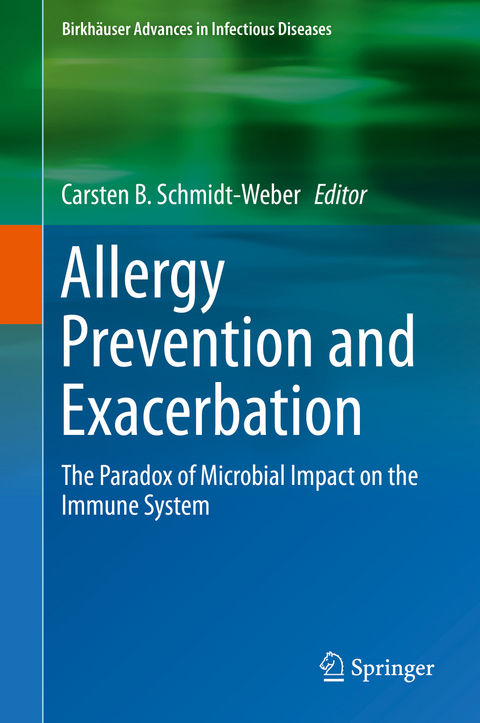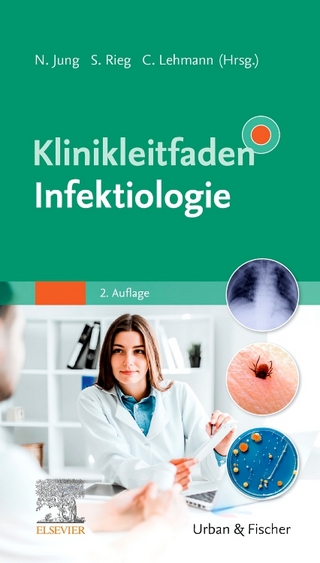
Allergy Prevention and Exacerbation
Springer International Publishing (Verlag)
978-3-319-69967-7 (ISBN)
Allergy is developing into one of the most prevalent diseases affecting individuals in the very early days of life. While the cause of this epidemic is still unclear, it appears that the westernized life style is playing an important role, which includes nutrition, possibly air pollution as well as hygienic conditions. While epidemiologic studies were able to narrow down these factors, basic research discovered novel mechanisms that control the organism´s tolerance against allergens. Particularly interesting is the role of microorganisms that colonize or infect a host and thereby cause damage and immunological activation followed by sensitization or exacerbation of already existing sensitizations. However at the same time microbial activation of the immune system can help to generate a protective immunity that prevents allergen sensitization. The current book is collecting these evidences and connects epidemiologic and clinical mechanistic knowledge. Only the synthesis of this knowledge will help to find solutions to the ongoing allergy epidemic in terms of public health activities, prevention and therapy.
Prof. Carsten Schmidt-Weber has been the director of the Center for Allergy and Environment (ZAUM) since 2010 and is a steering member of the Allergy and ImmunityCluster. Prof. Schmidt-Weber studied biochemistry and immunology in Darmstadt and Erlangen, Germany. He then attended the Harvard Medical School in Boston as a postdoctoral fellow and worked at the Swiss Institute for Allergy and Asthma in Davos, where he pursued theresearch for his postdoctoral teaching qualification (habilitation). From October 2007 to March 2010 he worked as areader at the Imperial College in London. Since 2010 he has been professor of the newly founded Chair of Molecular Allergology at TUM and Helmholtz Center Munich. He is a member of the Collegium International Allergologicum, the German Society for Immunology (DGFI) and the German Society of Allergology and Clinical Immunology (DGAKI). He has published over 50 original works, as well as review and book articles in prestigious professional journals.
Chapter 1: Overview:The paradox of microbial impact on the immune system in allergy prevention and exacerbation.- Chapter 2: Microbial triggers in Autoimmunity, severe Aller-gy, and Autoallergy.- Chapter 3: Bacterial allergens.- Chapter 4: Good and bad farming: the right microbiome protects from allergy.- Chapter 5: The lost friend: H. pylori.- Chapter 6: Parasite mediated protection against allergy.- Chapter 7: Initiation, persistence and exacerbation of food allergy.- Chapter 8: The role of the gut in type 2 immunity.- Chapter 9: Aryl hydrocarbon receptor: an environmental sensor in control of allergy outcomes.- Chapter 10: The gut microbiome and its marriage to the im-mune system: can we change it all?.- Chapter 11: Specific therapies for asthma endotypes: a new twist in drug development.
| Erscheinungsdatum | 11.02.2018 |
|---|---|
| Reihe/Serie | Birkhäuser Advances in Infectious Diseases |
| Zusatzinfo | VI, 248 p. 20 illus., 16 illus. in color. |
| Verlagsort | Cham |
| Sprache | englisch |
| Maße | 155 x 235 mm |
| Gewicht | 549 g |
| Themenwelt | Medizin / Pharmazie ► Medizinische Fachgebiete |
| Studium ► Querschnittsbereiche ► Infektiologie / Immunologie | |
| Schlagworte | allergen tolerance • asthma exacerbation • epidemiology of allergy • genetic predisposition • Hygiene Hypothesis • immunologic memory • Infectious Diseases • skin superinfection |
| ISBN-10 | 3-319-69967-9 / 3319699679 |
| ISBN-13 | 978-3-319-69967-7 / 9783319699677 |
| Zustand | Neuware |
| Informationen gemäß Produktsicherheitsverordnung (GPSR) | |
| Haben Sie eine Frage zum Produkt? |
aus dem Bereich


